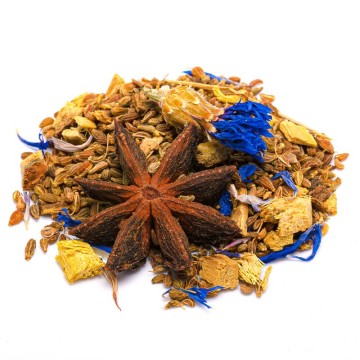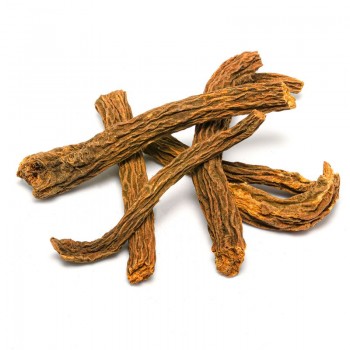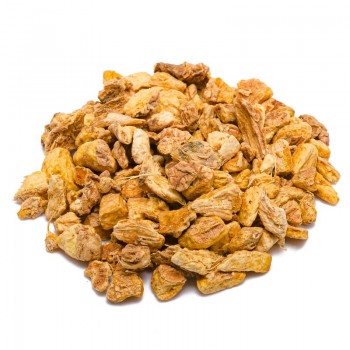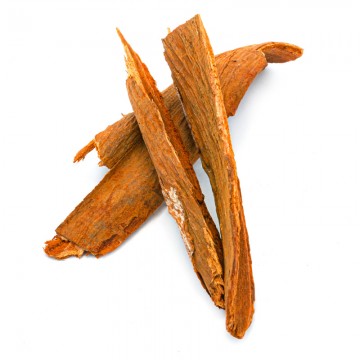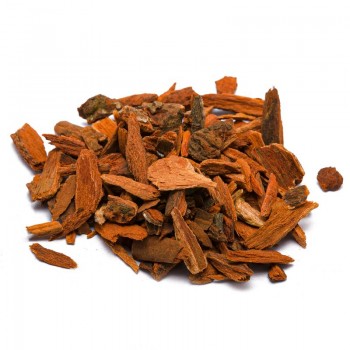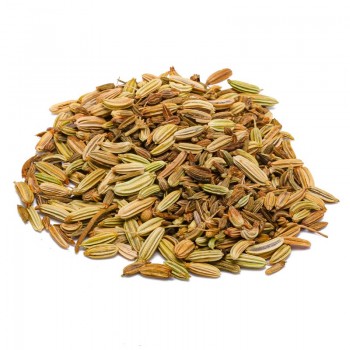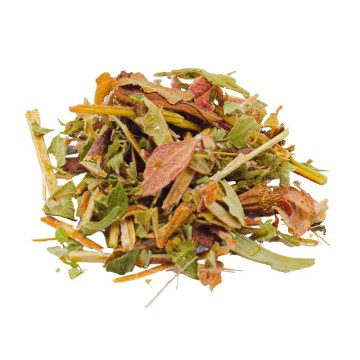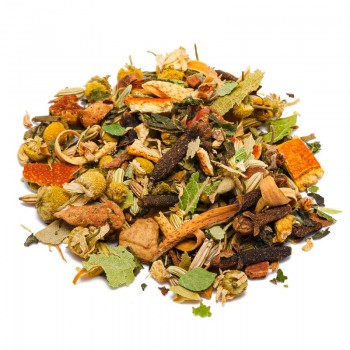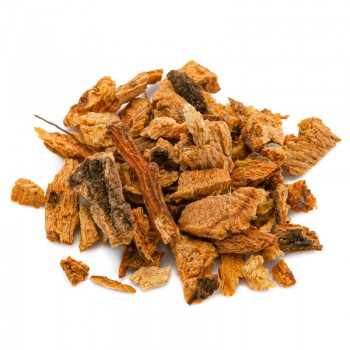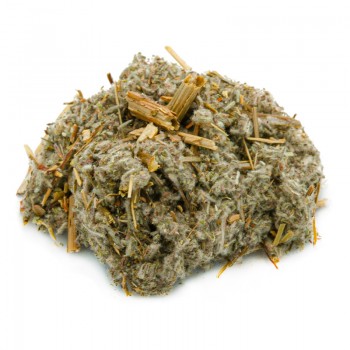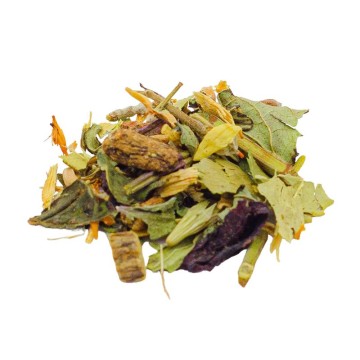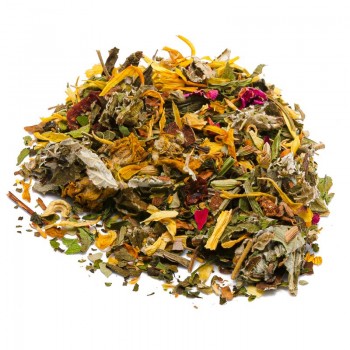This anise-based herbal tea mix is perfect for a relaxing break, which is also a precious ally for daily well-being after meals.
The infusion gives the palate a delicate flavor with a pleasant hint of anise and fennel, sweet and slightly spicy. The taste of marjoram and angelica enrich the infusion with a balsamic note, enhanced by the citrus scent of lemon balm and the refreshing scent of mint. Following the traditional use of medicinal plants, some aromatic ingredients are added to the mixture to aid digestion, such as anise, fennel and angelica.
Southernwood, mint and raponticum, ancient medicinal plants, also support digestive functions according to tradition, while mint offers a sensation of freshness and lightness. The infusion is completed with lemon balm, which promotes relaxation, evoking a relaxing atmosphere after meals and before falling asleep.
Please note: The information provided is based on herbal traditions and should not be considered as medical advice or therapeutic treatments.
Plants and flowers
In the herbal mixture we find medicinal plants of various origins, most of which have been widespread in Europe since ancient times. Raponth is a more recent acquisition - being of Asian origin and probably imported in the 16th century.
Anise has the botanical name of Pimpinella anisum, an annual plant belonging to the Umbelliferae family. It is one of the oldest medicinal plants, reaching 30-50 cm, with small white flowers and small seeds, from green to yellow.
Southernwood, with the botanical name Artemisia abrotanum, is a perennial plant of the Composite family. It is originally from southern Europe, and is known for its cedar-like odor. It grows best on uncultivated land, and reaches a height of about 1 meter. It has been used for centuries in herbal medicine, already appreciated by the ancient Greeks and very widespread in the Middle Ages.
Fennel or Foeniculum vulgare, is a plant of the Apiaceae family (Umbelliferae). It originally grew on the coasts of the Mediterranean, although today it is widespread in many parts of the world, for its food value. It prefers dry land, near the sea and on the banks of rivers. Melissa officinalis is an annual plant of the Lamiaceae family. Native to southern Europe, it grows up to about 60 cm in height and flowers from June to August. It grows best in land exposed to full sun, produces white or pale yellow flowers and very aromatic leaves.
Mint or Mentha is a perennial plant of the Lamiaceae family. It is widespread with different varieties, up to 24 species, all with similar herbal properties. Many hybrids are known for mint, mainly used for food.
Rhapontic or Rheum Rhaponticum is a herbaceous species belonging to the Polygonaceae family. It is a perennial plant whose name derives from the Latin rapòntico, a composition of rha, rhubarb, and Pontus (i.e. the Black Sea). Native to Central Asia, the rhapontic is characterized by a yellow rhizome with deep roots, from which a rosette of large oval leaves develops. The stem can reach 2 meters and produces small, white flowers.
Angelica Archangelica is a plant of the Apiaceae/Umbelliferae family, which grows spontaneously in mountain areas, in woods and in humid soils. It is also known as Angelica officinalis, widespread in Europe. It is cultivated for its edible stems and roots, reaching a height of up to 2 meters. It produces large leaves and small, numerous, greenish-white flowers. Marjoram, botanical name Origanum majorana, is a perennial plant of the Lamiaceae family, also known as Persia. Typical of the temperate climate, it can grow spontaneously up to about 60 cm in height in rocky places, dry slopes and up to over 2,000 meters in altitude.
How to prepare herbal teas with the herbal blend
The infusion is obtained by placing in a cup (250 ml), about 3-5 grams of the herbal blend, with water at 100 °C.
Leave to infuse for 8 to 10 minutes, before drinking the herbal tea. Add honey or sugar, if desired.
Herbal blend: side effects and contraindications
For the preparation of herbal teas, this blend is generally well tolerated and has no particular contraindications. It is recommended not to take the herbal tea for long periods and to respect the recommended doses, to avoid possible unwanted effects at the gastrointestinal level. It is not recommended for people with allergies or intolerances to the individual ingredients. It is not recommended for pregnant or breastfeeding women.

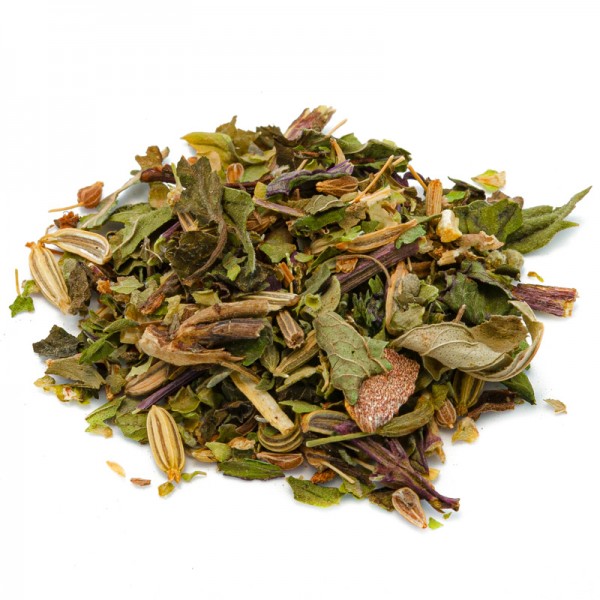









 No reward points for this product.
No reward points for this product.
